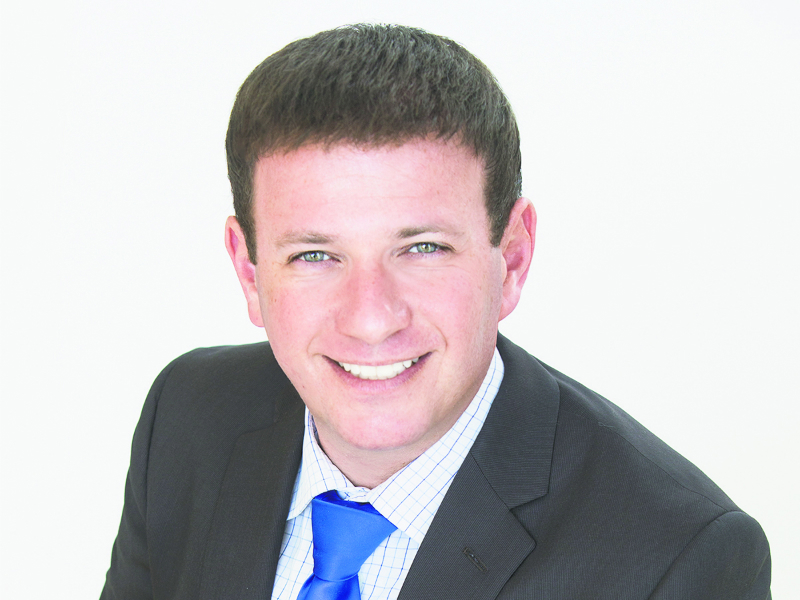In a rare display of dissent among Jewish advocacy groups, B’nai Brith Canada is opposing a provincial bill that aims to ban “hate-promoting demonstrations” from the grounds of Queen’s Park.
While the Centre for Israel and Jewish Affairs (CIJA) and the Friends of Simon Wiesenthal Center (FSWC) have come out in support of York Centre MPP Roman Baber’s private member’s bill that takes aim at hateful protests on the lawns of Queen’s Park, B’nai Brith Canada has turned its thumbs down.
Baber introduced Bill 84 – “an act to amend the legislative assembly act respecting demonstrations that promote hatred on legislative precinct grounds” – on March 20. It passed second reading on April 4 and now heads to the standing committee on justice policy.
Several Conservative MPPs spoke in favour of the bill. NDP MPP Laura Mae Lindo also expressed her support, saying she hopes that in the spirit of the bill, the Conservative government will reverse cuts to Ontario’s Anti-Racism Directorate.
Baber’s bill seeks to prevent any “demonstration, rally or other activity that, in the opinion of the Speaker, is likely to promote hatred against any identifiable group” on the legislative grounds.
While B’nai Brith commends the bill’s overall goal of preventing hate rallies, it said it cannot support the measure in its present form because it doesn’t apply beyond Queen’s Park.
The bill “geographically focuses on only three of the four lawns surrounding the Ontario legislature in Toronto,” B’nai Brith CEO Michael Mostyn noted in a statement to The CJN. “What about rallies that don’t take place at Queen’s Park?”
That would include the Worldwide Coalition Against Islam rally at Nathan Phillips Square, or a hate rally on any other provincially owned property, Mostyn said.
Even the annual Al-Quds Day rally in Toronto, which is scheduled for June 1, “will not be negatively impacted in any way by this proposed legislation, as it hasn’t taken place on those three lawns for years,” Mostyn pointed out.
Indeed, Queen’s Park refused Al-Quds Day organizers a permit in 2015. Since then, most of the rally has occurred in a municipal park just north of the legislative buildings.
Mostyn also noted that Queen’s Park already allows the Speaker to refuse to grant permits based on a demonstration’s hateful content. “As such, it’s hard to understand, beyond pure symbolism, what is the intended purpose of this bill, beyond merely enshrining the status quo,” he said.
B’nai Brith called for “significant amendments” to the bill.
However, other Jewish groups praised the bill.
Barbara Bank, chair of CIJA Toronto, said the bill “will ensure that those who seek to promote hatred do not benefit from using the legislature as a backdrop – whether they are promoting the noxious rhetoric of Quds Day, or the horrific white supremacist ideology that led to the devastating attack on Muslim worshippers at two mosques in New Zealand.”
FSWC president and CEO Avi Benlolo said that over the years, those behind the Al-Quds Day event have “used the property of the legislature to push (their) agenda of hate and intolerance against the Jewish community. This (bill) sends a strong message to its organizers that this kind of behaviour is no longer welcome at the legislature.”
READ: TORONTO ASKS FOR DEEPER DIVE ON STOPPING HATE RALLIES
Asked to comment on B’nai Brith’s position, Baber sent The CJN the following statement:
“While Bill 84 requires the Speaker of the House to prohibit hate-promoting rallies on the legislative grounds, it does so within the parameters of the Constitution. It leaves municipal lands to municipalities and enjoys strong support from CIJA, FSWC and other stakeholders. I look forward to continuing to work with B’nai Brith on issues important to the Jewish community and all Ontarians.”
The City of Toronto’s executive committee recently received a report on how to handle rallies that espouse hate on municipal property, but declared it unsatisfactory and sent it back for more work.
